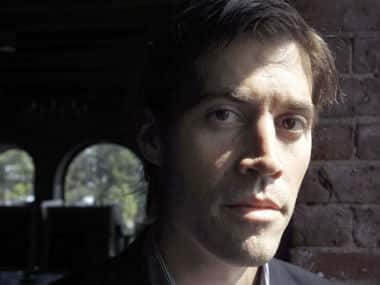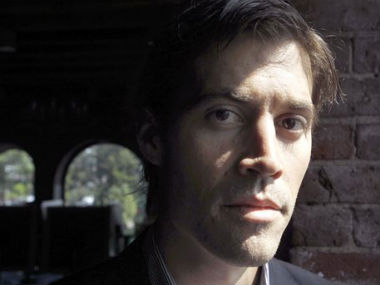Washington: The beheading of freelance journalist James Foley has forced a new debate between the longtime US and British refusal to negotiate with terrorists, and Europe and the Persian Gulf’s increasing willingness to pay ransoms in a desperate attempt to free citizens. The dilemma: How to save the lives of those kidnapped without financing terror groups, and encouraging more kidnappings. By paying ransoms, governments in the Mideast and Europe have become some of the biggest financiers of terror groups. By refusing to do likewise, the US and Great Britain are in the thankless position of putting their own citizens at a disadvantage. Foley’s captors, the Islamic State of Iraq and Levant (ISIL) militants, had for months demanded $132.5 million (100 million Euros) from his parents and political concessions from Washington. They got neither, and the 40-year-old freelance journalist from New Hampshire was savagely killed within the last week inside Syria, where he had been held since his disappearance in November 2012. [caption id=“attachment_1672205” align=“alignleft” width=“380”]  James Foley in an 2011 interview with Associated Press. AP image[/caption] Extremists called his death a revenge killing for the 90 US airstrikes, as of Thursday, that have been launched against ISIL militants in northern Iraq since 8 August. But the ransom demands began late last year, even before the ISIL — one of the world’s most financially thriving extremist groups — had begun its brutal march across much of western and northern Iraq. “They don’t need to do this for money,” said Matthew Levitt, a counter-terror expert at the Washington Institute think-tank. “When you ask for $132 million, for the release of one person, that suggests that you’re either trying to make a point… or you don’t really need the money.” A senior Obama administration official said Thursday the ISIL had made a “range of requests” from the US for Foley’s release, including changes in American policy and posture in the Mideast. At the State Department, deputy spokeswoman Marie Harf said the militancy — which controls a swath of land across northern Syria and Iraq — has collected millions of dollars in ransoms so far this year alone. “We do not make concessions to terrorists,” Harf told reporters. “We do not pay ransoms.” “The United States government believes very strongly that paying ransom to terrorists gives them a tool in the form of financing that helps them propagate what they’re doing,” she said. “And so we believe very strongly that we don’t do that, for that reason.” The issue of payments by American families or US corporations is now under debate within the Obama administration, according to a US official familiar with the conversations who spoke on condition of anonymity because he was not authorized to discuss them by name. The USA Patriot Act prohibits any payment or assistance to terror groups that could boost their support. The families of three Americans held by a rebel group in Colombia for five years, for example, were repeatedly advised against sending even medication and sneakers to the hostages to avoid potentially breaking the law. But prosecution in those types of cases is rare and enforced haphazardly. “I never saw, in my time as an FBI agent, where the US government threatened to prosecute a family for paying a ransom,” said Clinton Van Zandt, the FBI’s former chief hostage negotiator. He said government-paid ransoms help create “a growing cottage industry in kidnap ransoms.” “You may get that person back that time, but what you’ve done is put a price tag on the head of every American overseas,” he said. “And you’ve advertised that we pay to get Americans back.” Diplomats say ransoms paid or arranged by western European governments and the Gulf state of Qatar have provided the bulk of financial support for violent groups. That has spurred the US and Britain — as well as some north African states — to push a campaign discouraging ransom payments. In January, the US and Britain secured a UN Security Council resolution appealing to governments not to pay ransom to terror groups. The Group of Eight, a bloc of some of the world’s most developed economies, made the same pledge a year ago, also under US and British pressure. US and British officials say it’s not clear to what extent allied governments are abiding by those pledges. The US Treasury Department has estimated at least $140 million worth of ransoms have been paid to al-Qaeda and other terror groups in Africa and the Mideast since 2004. France and Qatar are most often identified as governments that frequently pay or arrange ransoms — usually to free European nationals. But France has denied doing so, as have Germany, Italy and the Nordic counties of Denmark, Norway and Sweden. All are accused by security experts, diplomats and others of having paid ransoms in some cases. Qatar typically refuses to comment on the issue of ransoms, and Spain has neither confirmed nor denied that it pays terrorists for hostages’ release. Despite its insistence that it does not make concessions to terrorists, the US did just that earlier this year in securing the release of American Sgt. Bowe Bergdahl from the Taliban. In exchange for Bergdahl, the Obama administration released Taliban prisoners from the US detention center at Guantanamo Bay — including some whom critics called among the most hardened fighters of the war against terror. Rather than pay ransoms, the US often tries to rescue its hostages with covert military teams trained to raid extremist camps. That was how the three hostages in Colombia were freed in 2008 in a joint operation with Colombian spies and US intelligence, for example. And a secret operation was launched in early July to rescue Foley and other US hostages being held by the ISIL in Syria. US special forces engaged in a firefight with the ISIL, and killed several militants, but did not find any American hostages at the unspecified location. At least three Americans are still being held in Syria. Two of them are believed to have been kidnapped by the Islamic State. The third, freelance journalist Austin Tice, disappeared in Syria in August 2012 and is believed to be in the custody of government forces in Syria. Money alone may not have been the main reason that the ISIL killed Foley. The militancy is already rich off donations from supporters in the Persian Gulf and a broad criminal network of extortion and robbery. It is also believed to have stolen what several US officials have estimated as millions of dollars from a bank in the northern Iraqi city of Mosul when the ISIL overran the area in June. The ISIL “is at a point of evolution in its goal toward brutal total war” against the West, said Fernando Carvajal, an expert on al Qaeda in the Middle East and north Africa at Britain’s University of Exeter. “It doesn’t need to kidnap for ransom.” AP
By paying ransoms, governments in the Mideast and Europe have become some of the biggest financiers of terror groups. By refusing to do likewise, the US and Great Britain are in the thankless position of putting their own citizens at a disadvantage.
Advertisement
End of Article
Written by FP Archives
see more


)

)
)
)
)
)
)
)
)



